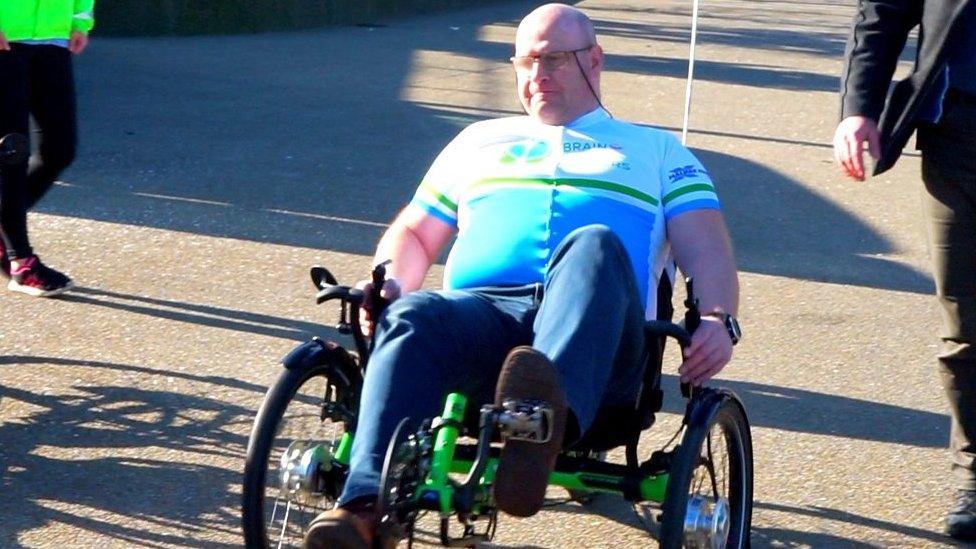Musgrave Park Hospital: 'Brain injury rehab unit gave me my life back'
- Published
'I'm really lucky to be here at all'
A former nurse who spent three months in the Regional Acquired Brain Injury Unit (RABIU) at Musgrave Park Hospital said the unit gave her her life back.
Nora Stevenson developed a brain injury after hitting her head when she fell down the stairs in December.
After intensive rehabilitation she was able to move home and live independently.
A ward sister in the unit said there needs to be "more services for people who have had a brain injury".
The RABIU opened in 2006 and is currently funded to provide 24-hour, seven days a week, holistic care for 23 inpatients across Northern Ireland.
Nora described having a brain injury as "life-changing" but is thankful she had rehab in RABIU.
"It has made me independent-ish," she said
"The goal obviously is rehab for any brain injury patient.
"Some brain injury patients are a lot worse than I was, although I was quite bad too.
"What this unit has done for me is really made me able to walk and just take care of things.
"They gave me my life back.
"I'm very lucky - really lucky after the brain injury to be here at all."
Nora's sister Jennifer Watson praised the treatment Nora received.
"Not only were they teaching Nora but they taught me at the same time how to help Nora so that I would be able to continue some of her therapies at home," said Jennifer.
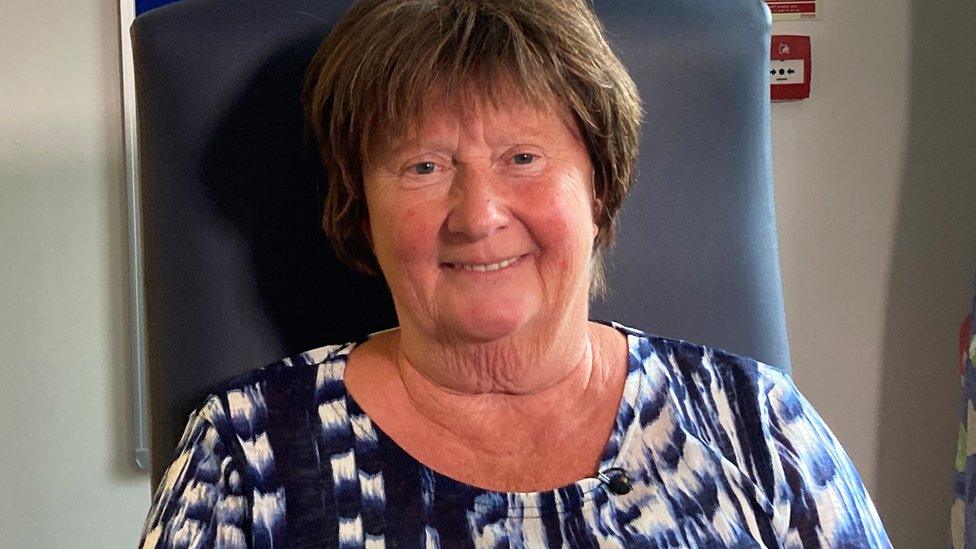
Jennifer Watson said her sister Nora has made an "excellent recovery"
"It was so structured. Her whole day was taken up with different therapies which has resulted in her being as good as she is.
"Clearly [Nora] was lucky but she did have a severe injury. She's just had an excellent recovery.
"She had that recovery because she was here [at RABIU] and had this concentrated period of rehab," she said.
RABIU aims to provide a high-quality, patient-centred assessment and rehabilitation service for patients with acquired brain injury (ABI).
An ABI is an injury caused by trauma, such as a fall or road accident or a neurological event such as a stroke or an infection.
Timetable of activities
Adele Woods is a senior occupational therapist (OT) at RABUI.
"My role as an OT is really to try and promote and maximise their independence after their brain injury, so getting them as close to how independent that they were before their injury in all their daily activities of living," she said.
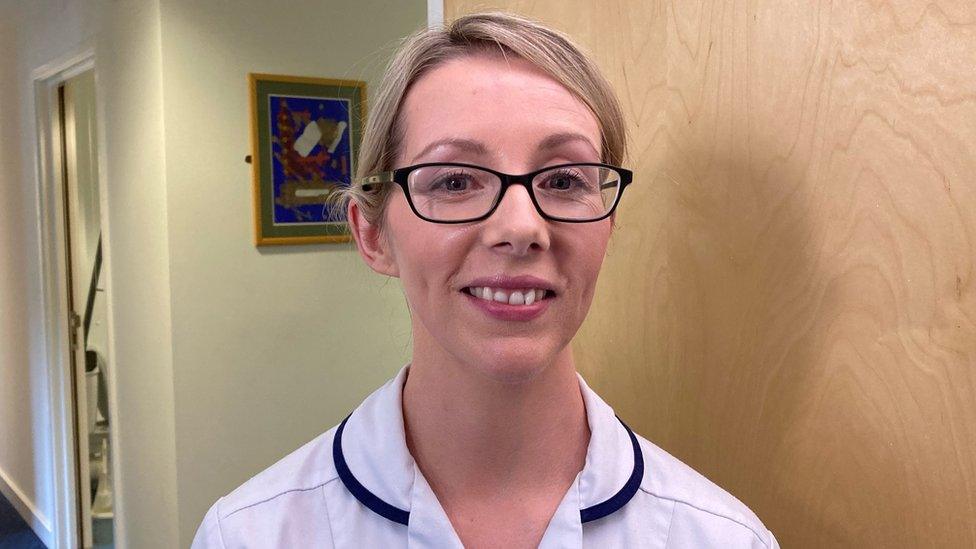
Adele Woods runs safety tests to check how patients will respond to an emergency
Before being discharged from RABUI Nora, like other patients, spent time in a pre-discharge assessment unit - a purpose-built flat which gives patients an opportunity to practice what it would be like to be at home, while giving staff a chance to assess any safety concerns.
"We might put a patient here on their own and we might give them a little structured timetable to follow," said Ms Woods.
"We might want to see are they going to make their lunch at the correct time.
"Can they do that themselves or do they need support? Can they remember to take their medications?
"We would even do things like put off a hoax fire alarm to see are they going to have the reasoning and the problem-solving skills to react to that or will they just sit in their chair and not react at all?"
A host of day-to-day activities are scheduled to see how patients cope.
"We might do hoax phone calls to see will they respond correctly if someone is trying to get their bank details off them?
"Can they do their washing? Can they move around themselves without assistance? Can they take themselves to the toilet?
"Are they safe overnight on their own? Will they have the right concept of day and night or will they be up wandering around?
"Or for those more dependent patients, their family might stay here with them and it gives the family confidence to know how realistically it is going to be outside of hospital."
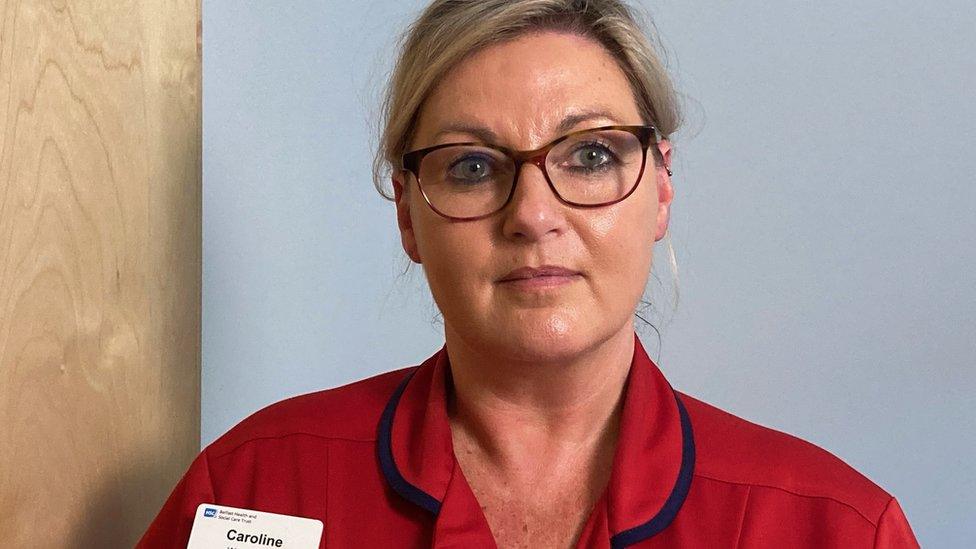
Ward Sister Caroline Lockhart said brain injury patients need individually-tailored care
RABUI Ward Sister Caroline Lockhart said the unit provides "vital care and rehabilitation" for brain injury patients, but more is needed.
"Whenever you look at the patients that are waiting to come in here and the statistics with regards to how many people actually have brain injuries, then us being the only unit within Northern Ireland, there needs to be more services for people who have had a brain injury," she added.
"Whenever someone has a brain injury the rehabilitation that they receive is going to make a difference for the rest of their lives."
Everybody's brain injury is different, Ms Lockhart explained.
"No one patient will present in the same way and from that point of view we assess all our patients in a very holistic, individual way and then we work along with the family," she said.
"Rehab is very much about the patient at the centre but then it's the multi-disciplinary team working together to then promote that independence so that when somebody does leave the unit that they're at their best, they're where they can be post-brain injury."
Related topics
- Published18 June 2023
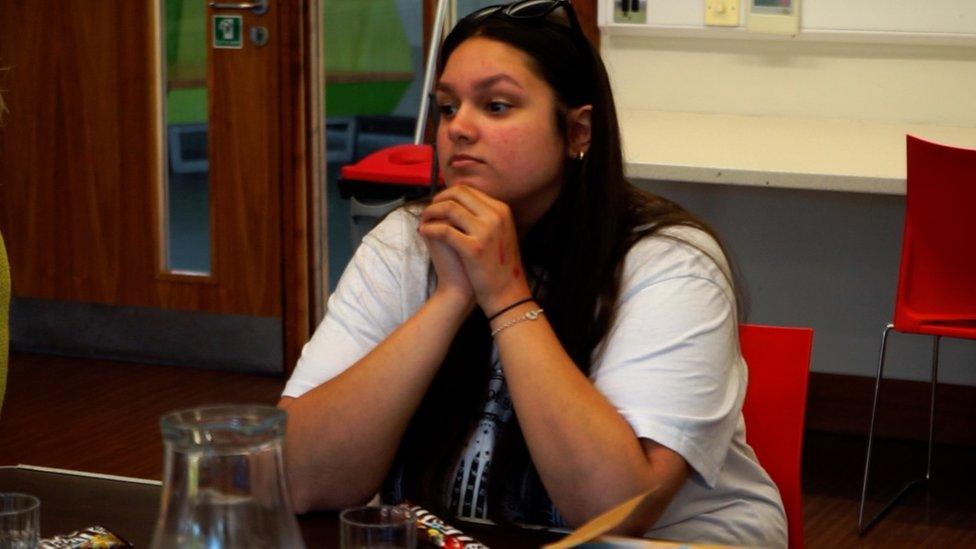
- Published6 April 2022
